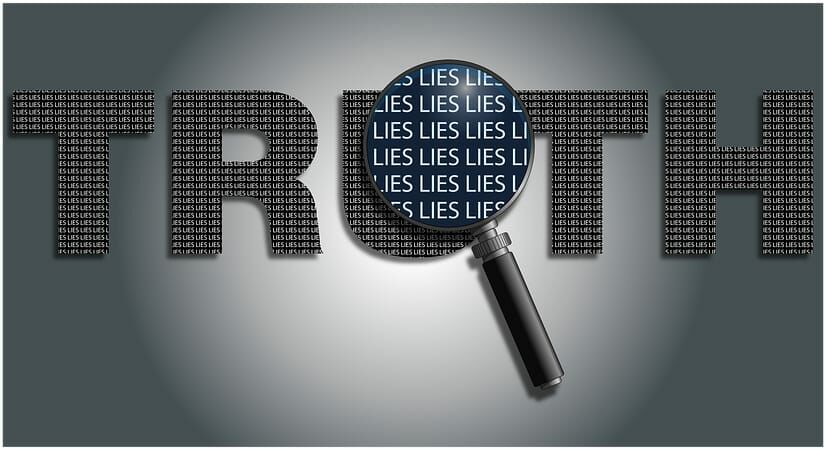Introduction
In the book ‘Grassroots for Hire: Public Affairs Consultants in American Democracy’ (2014,) Edward Walker defines ‘astroturfing’ as: ‘Public participation that is perceived as heavily incentivised, as fraudulent (claims are attributed to those who did not make such statements), or as an elite campaign masquerading as a mass movement.’ In the light of this statement, the intention of this article is to explore the underlying meaning and implications of the term ‘astroturfing’ and its relevance, if any, to homeopathy. Having reviewed and witnessed the sincere content of the movie ‘Magic Pills’ (a film about homeopathy, which balances the sceptics attacks with positive case outcomes and facts,) I have felt compelled to research further into what appears to be an unjust and false representation of the benefits of natural medicine and homeopathy, favouring almost any form of medicine that is profitable. To this end, the current state of affairs with regard to natural versus conventional medicine will be analyzed and discussion around any possible misrepresentation or manipulation of data evaluated. Definition and examples of astroturfing will be given putting the analysis into context, together with a general discussion on the subject and the effect it is having on consumers and society in general. Finally, having clarified the meaning and discussed specific instances of astroturfing, the truth and its relevance, I will apply this, albeit briefly, to the subject matter of Magic Pills.
Discussion
Most honest, straightforward people may have difficulty in understanding the degree of deception which now occurs in the medical world, particularly with reference to pharmaceutical companies. Any ridicule, vilification or misunderstanding in homeopathy, generally stems from a lack of understanding as to the mechanism of action of the remedies, and because of the paradigmatic differences between conventional and homeopathic medicine, it takes a very open mind to even begin to consider any proposed hypotheses; current research however, is slowly continuing to bridge the gap between pure science and the complexities surrounding the homeopathic mechanism of action. ‘Astroturfing’ however, takes things a step further. The public is influenced when manipulated and biased data is presented from what appear to be independent sources. The fact that people are being paid to give their professional opinions remains hidden. In homeopathy, it is often all our basic tenets which are derided, ultimately compromising one’s ability to have the real facts heard and understood by a society which is blinkered and swayed by deceptive influence; for this reason, we fight an uphill battle, but one in which we are never wholly defeated. As well as having over 200 years of positive evidence and confirmatory data behind us, thanks to valuable recording systems, it remains, according to The World Health Organisation, the fastest-growing and second-most widely-used system of medicine in the world (WHO, 2005.)
What will be exposed in this article is the way in which astroturfing specifically relates to homeopathy and the natural health industry and why it appears that no matter how many clinical studies there are, whether published in peer-reviewed journals or not, by eminent doctors, scientists, and researchers; any eminence and skill is systematically and unfairly discredited as an attempt to invalidate good research and professional opinion. The public needs to open their eyes to the lengths that corporate interests have gone to control and manipulate an impressionable audience in order to protect their bottom line.
Lawsuits have been launched against homeopaths and pharmacies, in an attempt to bankrupt the industry, this will be the subject of a separate article but needs to be mentioned here, as clearly, it is part of the picture. Whilst I willingly accept and embrace the fact that that there is a time and a place for conventional medicine, I feel, however, that due to ever-increasing iatrogenic disease, it is important to take complementary therapies seriously and integrate; deaths from conventional medicines remain the third biggest cause of death in the US, next to heart disease and cancer, (McMains, V:2016) prescription drugs and their abuse, whether accidentally or through deliberate overdosing, have reached epidemic proportions. (CDC: 2017: Updated.) It is imperative, that things change, and the truth about the efficacy of natural and homeopathic medicines be fully exposed, so people have a choice. Also, I am no conspiracy theorist; such people exhaust me with their endless suspicion, negativity and often misguided beliefs about anything and everything. I am simply someone who can see the proof, with reference to the evidence for effectiveness of homeopathy, staring her in the face. None of it makes sense; why would anyone begin to deny the value and success of homeopathy, where the statistics, without any question of doubt, speak for themselves in terms of healing, through published research, empirical evidence and many successful observational studies. I would consider the following databases to be erudite sources in revealing positive research, and showing the value of homeopathic treatment in a variety of conditions: HRI's CORE-Hom 2017, Bell I, Gold P, 2016
What is astroturfing and what is its purpose?
So, what exactly is ‘astroturfing?’ The Oxford English Dictionary defines it as such: ‘The deceptive practice of presenting an orchestrated marketing or public relations campaign in the guise of unsolicited comments from members of the public.’ Its origins lie in the idea that such a campaign is an artificial version of a grass-roots campaign. Invariably the ‘astroturfers’ are paid to display overt and apparently spontaneous grassroots support for a particular product. The antithesis of astroturfing is ‘Grassroots’ defined in the Oxford English Dictionary as: ‘The most basic level of an activity or organization. A crusade, drive, grassroots movement.’ A recent example of this is the beginning of the refugee crisis in Europe (2015) where concerned individuals, (many of my colleagues!) with no plan apart from the help, set up aid camps in Calais and Dunkirk, joining forces with existing charities in order to save and improve the lives of displaced persons. Notably, there is no deceptive agenda driven by large corporations; herein lies the fundamental difference, highlighting the difference between ‘grassroots supporters and astroturfers.
Sharyl Attkisson is a five-time Emmy Award-winning anchor, producer, and reporter whose television career spans more than three decades. In 2009, she exposed the falsity of the swine flu media hype, showing the hysteria was manufactured and completely unfounded. She is an expert in uncovering scenarios that screech of deception, similar to the swine flu situation, here she sums up the ‘purpose’ of astroturfing:
The whole point of astroturf is to try to convince you there’s widespread support for or against an agenda when there’s not. The language of astroturfers and propagandists includes trademark inflammatory terms such as: anti, nutty, quack, crank, pseudo-science, debunking, conspiracy theory, deniers and junk science. Sometimes astroturfers claim to “debunk myths” that aren’t myths at all. They declare debates over that aren’t over. They claim that “everybody agrees” when everyone doesn’t agree. They aim to make you think you’re an outlier when you’re not.
Attkisson, S. 2016
Astroturf campaigns are on the rise and it is important to mention the views of experts in the field such as George Montbiot, a political and environmental campaigner, who writes for The Guardian. Even though it is not directly related to homeopathy or natural health, the agenda is the same, to keep the circle tight and exclude all those who threaten the ‘dark money network’. He states:
An astroturf campaign is a fake grassroots movement: it purports to be a spontaneous uprising of concerned citizens, but in reality, it is founded and funded by elite interests.’ (Montbiot, G:2010.) He also refers to movements such as these as being indicative of ‘false consciousness.’ In a recent report, he confirms: ‘Already, big money exercises illegitimate power over political systems, making a mockery of democracy. The battering ram of campaign finance, that gives billionaires and corporations a major political advantage over ordinary citizens; the dark money network (a web of hundreds of lobbying groups funded by billionaires, that disguise themselves as think tanks astroturf campaigning (employing people to masquerade as grassroots citizens’ movements) and botswarming (creating fake online accounts to create the impression that large numbers of people support a political position): all these are current and urgent threats to political freedom.
Montbiot, G: 2017
Examples of astroturfing in homeopathy
It is important to see examples of astroturfing in context, in order to understand exactly what is going on.
Sharyl Attkison has exposed how Wikipedia is used in AstroTurf wars:
Anonymous Wikipedia editors control and co-opt pages on behalf of special interests. They forbid and reverse edits that go against their agenda. They skew and delete information in blatant violation of Wikipedia’s own established policies with impunity, always superior to the poor schleps who actually believe anyone could edit Wikipedia, only to discover they’re barred from correcting even the simplest factual inaccuracies.
Attkisson, S: 2015
The Wikipedia entry on homeopathy is a prime example of this. Homeopathic experts and supporters have been prevented from editing and contributing the article, and only homeopathic detractors are welcome to edit the entry. The Wikipedia text describing homeopathy is unquestionably biased, and full of fundamental flaws. For example, as of December 17, 2017, within the first few lines it states: ‘large-scale studies have found homeopathy to be no more effective than a placebo indicating that any positive effects that follow treatment are only due to the placebo effect.’ This is grossly misleading as evidenced by the thousands of published studies on the subject. This, together with the use of inflammatory and derogatory language such as ‘nonsense, quack and scam’ (which leads back to Sharyl Attkisson’s exposé on the language used by astroturfers.) certainly appears to fall under the definition of astroturfing. When did deception, fraud, twisted hype and media manipulation become the norm and acceptable? So much for progress, a sad indictment of today’s world.
How to recognize astroturfers
Because astroturfing by definition is deceptive, it can be difficult to recognize. There are key hallmarks which help to identify astroturfing Dr Mercola (2017) pinpoints the following:
Use of inflammatory and derogatory language. Keywords to look for include crank, quack, nutty, lies, paranoid, pseudo and conspiracy
Will often claim to debunk “myths” that are not myths at all They will attack people, personalities and organizations rather than address the facts or concerns in question
Astroturfers are skeptical of those exposing wrongdoing rather than the wrongdoers. As noted by Attkisson, rather than questioning authority, astroturfers question those who question authority.
The real facts/conclusion
In my opinion, astroturfing appears to be a significant threat to homeopathy and humanity. From the biased evidence base and dishonest rejection of good evidence, to the consistent use of derogatory and inflammatory language (words such as pseudoscience and quacks) used to discredit homeopathy and homeopaths in articles, blogs, radio, newspaper, and even Wikipedia. The popularity of lawsuits against the homeopathic industry orchestrated by surprisingly well-financed sceptic organizations, in my opinion, is the manufacturing of a fraudulent grassroots movement. What appears to be an uprising of concerned citizens and respectable scientists who feel homeopathy is not only useless, but dangerous, may in reality be a well-funded PR campaign to stop the expansion of homeopathy and natural medicine in order to protect the profits of the industrial medical complex. I felt the sceptic in Magic Pills presented themselves as condescending and aggressive in their tone and ignorant in their inability to back their claims scientifically, very much in the spirit of astroturfing. Ananda’s goal in making this film was to challenge this kind of one sided thinking, and expose another side to the homeopathic story that is rarely seen in the mainstream media:
We are making this film to shine a light on the scientists, doctors, and health practitioners whose work has been hidden from the public, wrongfully discredited and silenced in the name of scepticism and public protection. The film examines large-scale use of homeopathy in disease prevention, cancer treatment and AIDS/HIV, along with very compelling scientific research and evidence to support the idea that homeopathy is not only plausible but effective and affordable.
Magic Pills goes beyond the rhetoric to expose real-world stories. Is everyone, who believes in homeopathy and has experienced it first-hand deluded? Are we all lying, or being lied to, therefore risking our health? If so, why is homeopathy so popular, even amongst medical professionals and scientists. Perhaps there is more to homeopathy than meets the eye, and the positive outcomes, high rates of satisfaction amongst homeopathic patients are being buried to support a false narrative. But the power and efficacy of homeopathy still stands, even and after 200 years of attack. This is strong confirmation and positive, energetic defiance and validation to suggest that truth and integrity can still triumph, despite the odds unfairly stacked against us.
Wrong does not cease to be wrong because the majority share in it.
References
Attkisson,S (2015) ‘Astroturf and manipulation of media messages’ [online]: Available at: https://www.youtube.com/watch?v=-bYAQ-ZZtEU
Bell,I, Gold,P, (2016) Homeopathy Research Evidence Base’[online.]: Available at: http://www.homeopathy.ca/pdf/HomeopathyResearchEvidenceBase_10-29-15.pdf
CDC, (2017,updated) ‘Opoid Overdose, Prescribing data’ [online.] Available at: https://www.cdc.gov/drugoverdose/data/prescribing.html.
Elizabeth, E. (2017) ‘How astroturfing and other media manipulation compromise your ability to get truthful information’ [online]: Available at: https://www.healthnutnews.com/how-astroturfing-and-other-media-manipulation-compromise-your-ability-to-get-truthful-information/)
HRI (2017) CORE-Hom, Research data base, [online.] Available at: https://www.hri-research.org/resources/research-databases/
Mercola, J. (2017) How astroturfing and Other Media Manipulation Compromise Your Ability To Get Truthful Information.’[online.] Available at:
https://articles.mercola.com/sites/articles/archive/2017/10/28/asoturfing-media-manipulation.aspx
McMains, V. (2016) John Hopkins study suggests medical error are third leading cause of death in US. [online.] Available at: https://hub.jhu.edu/2016/05/03/medical-errors-third-leading-cause-of-death/
Montbiot,G. (2010) The Tea Party Movement: deluded and inspired by billionaires.’ [online.] Available at:
Montbiot, G. ‘Use it or Lose it’ (2017) [online.]
Available at:http://www.monbiot.com/2017/03/08/use-it-or-lose-it/
As we believe in giving various perspectives a voice, we may publish ideas we don't necessarily agree with, therefore the views of the authors do not necessarily reflect the views of Magic Pills, Ananda More, or Phosphorus Films.



